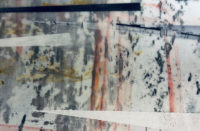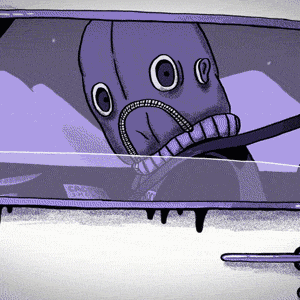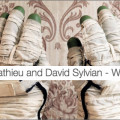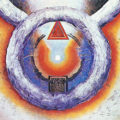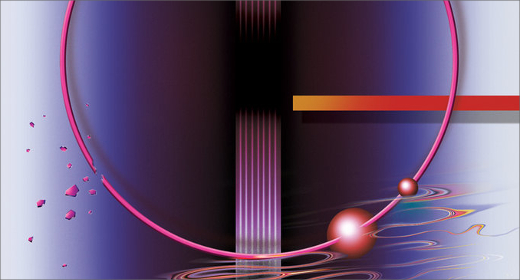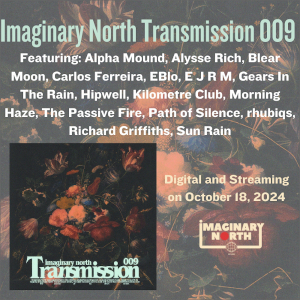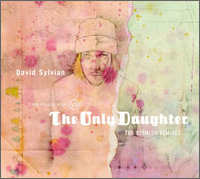 (03.13.05) David Sylvian’s Blemish album was the first release to appear on his
(03.13.05) David Sylvian’s Blemish album was the first release to appear on his
own newly formed independent label Samadhisound in 2003. Written as a break from a project he was working on with Steve Jansen, Blemish is a suite of eight compositions based on studio recordings of live improvisational sessions utilizing Sylvian’s voice as the focal point, minimal electronic brush-strokes and, on three songs, the prominently showcased free-jazz guitar work of Derek Bailey.
Samadhisound returns to this fertile ground for its fifth release with The Good Son vs The Only Daughter: The Blemish Remixes, a collection of often radical re-workings by eight artists of seven of those original, stark compositions, all personally commissioned by Sylvian himself. If this to you sounds like the product of a small independent label attempting to fill time with a hastily thrown together remix compilation then think again. All hyperbole aside this has to be one of the finest remix compilations ever released.
One of the problems with both compilations and remix compilations is that an individual’s appreciation of them as a whole is going to vary according to their appreciation of the work of the contributors. As these contributors can be both various and diverse (as is unequivocally the case here), the content of the compilation can often reflect that, in which case it becomes almost inevitable that the listener will end up favouring a select few tracks and disregarding – at least to some extent – the rest. The Only Daughter… dispels this possibility almost instantly.
The minimal nature of Sylvian’s source material is, of course, a blessing. The majority of the tracks on Blemish owe their structure and melody almost entirely to Sylvian’s vocals alone. Bailey’s free-jazz guitar and the electronic brush-strokes that appear in these works serve more as undercurrents, adding a great deal texturally but less melodically, focusing the listener’s attention on Sylvian’s voice. The result is a suite of tracks from which almost all instrumentation can be substituted with totally new arrangements and accompaniments resulting in a fully recognizable yet totally different piece of music. Indeed many of the remixes on “The Only Daughter” would be better-termed re-workings or even re-recordings. In a number of cases, session musicians have been brought in by the remix artists to record completely new compositions and arrangements.
There is no clearer example of this than on the first track; Ryoji Ikeda’s re-working of “The Only Daughter”. Ever since Ikeda’s Op release for the Touch label he has all but abandoned the electronic in favour of classical instruments, and this divergence is very much in evidence here. Interestingly, although the original version was not a track on which Bailey’s erratic guitar-work appeared, Ikeda has reflected the free-form structure in a brand new, atonal arrangement
performed on flute, French horn, violin, viola, cello and piano. The flute is particularly effective when used in atonal music, its lilting, hypnotic quality serving to provide a stabilizing and focal centre to what can otherwise be unsettling and disconcertingly random melodic structures. The result is nothing short of magical: Ikeda’s remix has Sylvian speaking directly to you through the speakers, imbuing the piece with a humanity and a narrative that even the original version set at a distance with it’s chopped up vocals and burbling electronic undercurrents. Eerie, unsettling, cinematic and utterly compelling, this is quite simply the product of genius.
Burnt Friedman’s rather more conventional, smooth and noticeably rhythmic remix of “The Only Daughter” follows, refuelling the original with a hushed, loping beat, light piano keys and a newly recorded and softly blown clarinet solo. It becomes particularly apparent at this point that the album has been lovingly arranged and edited to match the narrative cohesion of the original: the remixes have been sewn together so deftly it’s often impossible to hear the joins. Sweet Billy Pilgrim has also weaved newly recorded clarinet arrangements into his version of “The Heart Knows Better”, blurring the lines between his and Friedman’s remixes so completely they could be mistaken for two movements of the same piece. And yet after a few moments, Sweet Billy Pilgrim has firmly imprinted “The Heart Knows Better” with a completely new and individual identity.
 The original version of “A Fire In The Forest” provided a soft and melodic exit to “Blemish,” crafted as it was from the intricately woven sounds of the critically acclaimed Christian Fennesz. Readymade FC effortlessly transforms “A Fire In The Forest” into something totally other, emphasizing a pop sensibility that is hard to divine from the original by setting up an addictive and recognizable hook using a delicate, tinkling music box melody that is subsequently joined by crunching chatter and a frail, weeping violin.
The original version of “A Fire In The Forest” provided a soft and melodic exit to “Blemish,” crafted as it was from the intricately woven sounds of the critically acclaimed Christian Fennesz. Readymade FC effortlessly transforms “A Fire In The Forest” into something totally other, emphasizing a pop sensibility that is hard to divine from the original by setting up an addictive and recognizable hook using a delicate, tinkling music box melody that is subsequently joined by crunching chatter and a frail, weeping violin.
But perhaps the most astonishing track on The Only Daughter… is Tatsuhiko Asano’s extraordinary remix of “How Little We Need To Be Happy.” To appreciate just what an achievement this remix is you need to have heard Sylvian’s original version, as it is probably the most off-kilter and amorphous track on Blemish. Asano rescues Sylvian’s voice from Bailey’s lunatic guitar twangs, and sets it amongst a warm, smoky mix of loungy, trip-hop percussion, glowing guitars and laid back keyboards. A bridging section mid-way through reveals newly composed string motifs and the last, twisted vestiges of the original’s guitar before the piece swirls away into the distance. Asano’s new arrangement brings underpinning melody and free flowing but recognizable structure to a track that, in it’s original form, was almost bereft of these facets. A startling achievement.
Elsewhere of note there is another variation of “The Only Daughter” by Jan Bang and Erik Honore, that remains relatively faithful whilst wreathing a new, almost Eastern trumpet solo around it and a typically elliptical version of “Blemish” by the extremely talented Akira Rabelais which finds the originals wowing guitar samples muted, twisted and eroded still further.
I would implore all those out there who doubt the value of or have become disillusioned by the remix to listen to The Only Daughter…; it could not have been a greater success and I can think of no better document to illustrate just how stunning the remix can be if assembled with passion and care. It is an astonishingly accomplished, cohesive piece of work that stands side by side with and in many places actually surpasses Blemish, and receives the highest recommendation it is possible to give.
Samples of each track on The Only Daughter… are available from the pretty but annoying, Flash-based Samadhisound website, but will more than likely prove off-putting. As is often the case with sound-samples of such delicate and carefully woven music, these fragments offer rather empty glimpses of the whole that end up sounding rather lifeless and discrete. Rest assured that this is not the case. Buy, without hesitation. Immediately.
The Good Son vs. The Only Daughter (The Blemish Remixes) is out now on Samadhi Sound.









